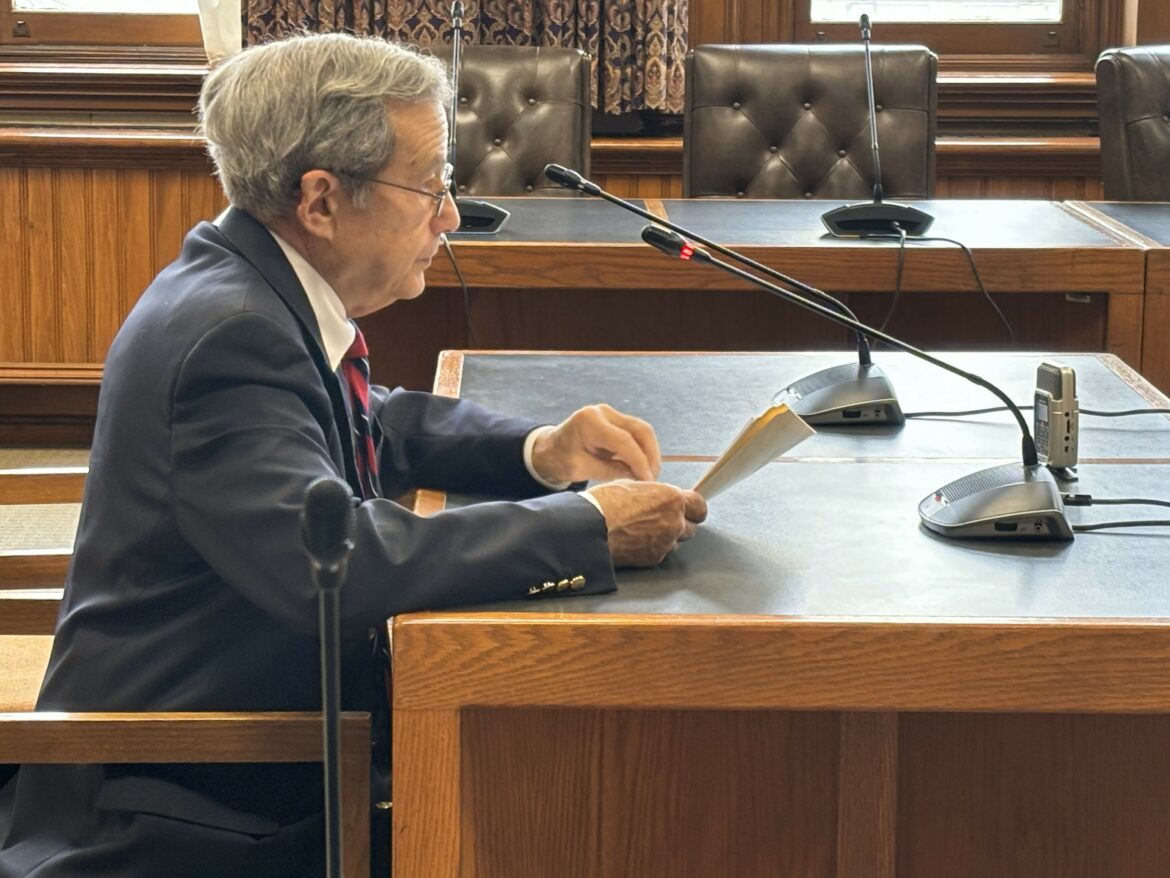By PAULA TRACY, InDepthNH.org
CONCORD – There are financial and privacy concerns related to a bill that would require health care providers to report abortion data to the state, lawmakers were told Wednesday.
There were also questions about what the benefit is to collecting this data.
Currently, there is no federal requirement, and the state has no information on how many abortions occur here annually.
Health and Human Services Associate Commissioner Patricia Tilley took no position on Senate Bill 461 but gave a ballpark price of about $1 million to implement the measure, and she said it would require a full-time coordinator and a part-time system manager to manage the data.
She said there is no money in the Health and Human Services budget to maintain a database which would need to be developed.
Collection of this data could be so specific under the bill that a person’s identity could be revealed, the House Human Services and Elderly Affairs Committee was told.
The state would have to create a new set of standards for a system under the federal HIPAA privacy guidelines and it would also require people to run the system, Tilley noted.
The amended bill passed the Senate by its Republican majority but had no public hearing. It was a bill initially offered to provide language clarity to the state’s recent fetal protection act.
Former state Rep. Neal Kurk, representing himself, came back to his old committee room and said he supported the concept but said the bill, as written, impacts privacy rights.
He suggested it be re-worked or studied particularly as it relates to location of the facility.
Specifically, he said a patient who comes to a small town doctor’s office for an abortion could be identified, he said.
Kurk said it should be exempt from the state’s right-to-know law as well.
He stressed that there is no requirement for such data by the federal CDC.
Jason Hennessey, president of the group NH Right to Life, said 46 states and the District of Columbia all have such reporting requirements. He said there has not been one example of harm over the decades this data has been collected.
“How do we know if abortion is a safe procedure,” he asked.
The state already collects a lot of personal data, Hennessey said.
Hennessey supported the bill but asked for changes including keeping the language in the fetal protection act intact which Democrats want changed and was the primary reason for the bill.
Devon Chaffee, executive director of the ACLU, came in opposition to the bill and said there have been data breaches of HHS information in the past.
She said now the stakes have gotten a lot higher on abortion data after the Dobbs decisions which struck down Roe v. Wade, the 50-year-old law allowing for access to abortion nationwide.
“The bottom line is Granite Staters care about privacy,” she said. And she noted that it would reveal information about the health care providers who are being targeted by abortion opponents.
The bill looks to collect the date and place of the abortion performed, age of the pregnant patient, method used to perform the abortion, gestational age when the abortion was performed and any prescriptions that are written for inducing abortion. Its effective date would be upon passage.
Chaffee asked why this medical procedure was singled out.
Sandra Denoncour, executive director of the Lovering Health Center in Greenland, which provides abortion care, said her organization would be directly impacted by SB 461 if passed.
She said it voluntarily provides data to two national organizations including the Guttmacher Institute, https://www.guttmacher.org/ but opposed the data collection by the state with “no clear intent” to positively impact public health.
The Lovering center is among a small number of abortion providers in the state who have not been funded over the past three years of health care contracts by the Executive Council.
Denoncour said legislators are putting an unacceptable risk to data leaks by supporting the bill.
Dartmouth Health’s Dr. Gretchen S. Stuart called the bill “risky for patients without any benefits.”
Ava Hawkes, director of advocacy for the NH Medical Society supported the original bill but is now opposing it as amended in the Senate.
She said Maine has recently passed legislation to protect such data.
Online there were eight people who signed in as in support of the amended bill while 32 opposed and two neutral.





